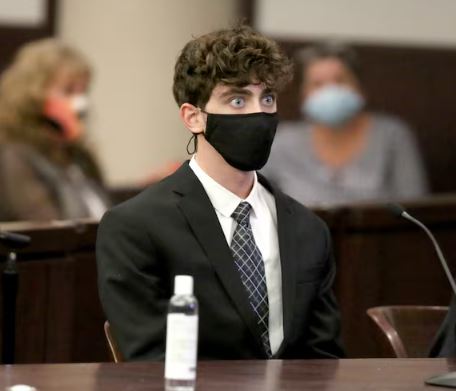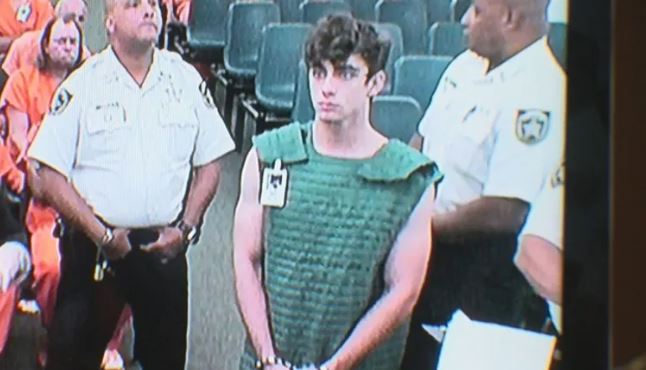In 2020, the name Cameron Herrin became widely known across social media and news outlets. What started as a tragic accident turned into a global conversation about justice, youth, and the power of social media. Videos, hashtags, and TikTok clips flooded the internet. But behind all the headlines and viral content lies a real story — one involving real people, serious consequences, and tough questions about accountability.
If you’ve heard the name but aren’t sure what happened, or if you’re wondering why his case is still being talked about in 2025, this article will walk you through the key details. We’ll break down what happened, the legal outcome, why the internet reacted so strongly, and where things stand today.
Who Is Cameron Herrin?

Cameron Herrin was a 20-year-old college student from Florida. He had just graduated from Tampa Catholic High School and was studying at Texas Tech University. From the outside, he seemed like a typical young man — active on social media, involved with friends and family, and starting his adult life.
But everything changed in May 2018, when a moment of reckless driving led to a tragedy that changed multiple lives forever.
The 2018 Crash That Sparked It All
In May 2018, Cameron Herrin and his friend were racing their cars on Bayshore Boulevard in Tampa, Florida. As they sped down the road, they struck a mother, Jessica Reisinger-Raubenolt, who was pushing her 21-month-old daughter in a stroller. The crash killed both the mother and the child.
Cameron was driving a Ford Mustang, a graduation gift from his parents. Surveillance footage later confirmed that he was going well over the speed limit.
The incident shocked the local community. But it wasn’t until the case went to trial that the story became known nationwide.
The Legal Consequences
In 2021, Cameron Herrin pleaded guilty to vehicular homicide. He was sentenced to 24 years in prison — nine years for the death of the mother and 15 for the death of the toddler. The judge said the sentence was meant to reflect the serious nature of the crime, especially since street racing had become a growing problem in Tampa.
Many people felt the sentence was fair. Others believed it was too harsh, especially for a first-time offender who was only 18 at the time of the crash. And this is where the internet stepped in.
The Viral Side of the Case
In 2021 and 2022, videos of Cameron Herrin went viral on TikTok and Twitter. Clips of him in court — young, clean-cut, and emotional — sparked an unexpected wave of support. Hashtags like #JusticeForCameronHerrin trended worldwide. Some users even started petitions to reduce his sentence.
Supporters argued that he didn’t deserve such a long sentence for what they saw as a tragic mistake. Others criticized this response, saying it showed how appearance and privilege can sway public sympathy.
The case quickly became a hot topic for online debates about race, class, justice, and the influence of social media.
Where Is Cameron Herrin Now in 2025?
As of 2025, Cameron Herrin is still serving his sentence in Florida. His legal team has explored appeals, but so far the original sentence remains in place. While the online buzz has faded somewhat, there are still active discussions on Reddit, YouTube, and TikTok about his case.
Occasionally, updates about him resurface and spark renewed interest. Some supporters still hope for early release, while others continue to stand with the victims and their families.
The conversation has shifted from viral sympathy to deeper questions about how the justice system treats young offenders — and how social media can change the tone of serious issues.
The Bigger Picture

The Cameron Herrin case is more than just a headline. It reflects how one decision can change everything. It also shows how the internet can shape — and sometimes distort — public perception.
Whether you believe his sentence was just or too harsh, there’s no denying that this case touched a nerve. It challenged how we think about crime, punishment, youth, and second chances.
It also opened a door to important conversations about street racing, accountability, and how we respond to tragedy.
Final Thoughts
The story of Cameron Herrin isn’t just about one young man. It’s about how actions have consequences, even when they come from a moment of poor judgment. It’s also about how the world reacts to those consequences — sometimes with compassion, sometimes with criticism, and sometimes with confusion.
As we move forward, stories like this remind us to think more deeply about justice, fairness, and how we use our voices online. Whether you’re following the case out of curiosity or concern, it’s a powerful example of how quickly life can change — and how much we still have to learn.
